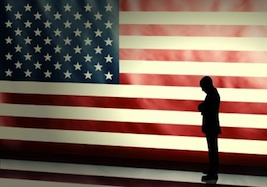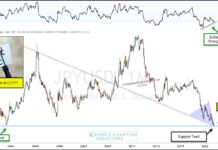 In the very early ‘90s, with the fall of the Soviet Empire, US diplomacy edged toward proactive, as the United States became the de facto policeman of the world. An unwilling policeman at first, the US turned almost crusader by the end of the Bush administration. After lasting nearly a generation, I believe we are about to witness a full reversal and an end to that era. Furthermore, a century ago, the United States was almost an international policy recluse. Fast-forward to today and US diplomacy has come full circle.
In the very early ‘90s, with the fall of the Soviet Empire, US diplomacy edged toward proactive, as the United States became the de facto policeman of the world. An unwilling policeman at first, the US turned almost crusader by the end of the Bush administration. After lasting nearly a generation, I believe we are about to witness a full reversal and an end to that era. Furthermore, a century ago, the United States was almost an international policy recluse. Fast-forward to today and US diplomacy has come full circle.
Let’s cut to the chase: the United States has changed from being on a mission to be the world’s superpower, to the need to address China at all costs, front and center. A United States that once basked in the glow of a world that looked up to it for its help, guidance, and support, is now turning inwards to focus on a game of chess, with an eye at keeping China at bay.
So, in a style matching the early 1900’s, never has the USA been more alone, more distant from its traditional allies, or more “individualized”. In a world where “selfie” is the word of the year, in a world where President Obama’s joining in on a selfie at Nelson Mandela’s funeral was clearly the second most important topic of press and social media flutter, the United States leadership has fully embraced this new trend: It has become self-centered like the rest of us. Since we collectively shape our government, it is not totally bizarre that the US has become self-centered and, in turn, alienated its closest allies.
While it is impossible to know how this generational shift in US diplomacy will affect our lives and our financial future, it is important to recognize that it will. The most prominent, obvious consequence is that we are on our way to energy-independence. We are fighting to recover lost manufacturing ground. And we will need stronger foundations to keep international competition at bay.
Over the past few years, probably since 2002, but in accelerated trend since 2010, the United States has damaged all of its close diplomatic relationships.
Europe is still reeling from the NSA spying scandals and the consequences are still unclear. But, the feeling of cheating and duplicity will affect our ties in many ways: It will affect the free trade agreement; it will affect joint policy efforts and any event where a united front would have been needed; and it will take years of good will to repair the distrust caused by these events… even though every party (the USA and each EU country) is trying to put a quiet face on what happened. Just like a personal relationship whereby cheating occurs, the offense can be forgiven, but not easily forgotten.
Israel and its right-wing are equally peeved, for different reasons. The traditional US-Israeli pairing is drifting apart at all seams, from the Palestinian conflict, the Iranian diplomacy, and the Syrian issues. The perceived constant righteousness of the Obama administration on all Middle-Eastern matters has created a wedge that will also take time to heal.
Staying in that region of the world, the tensions are real with Turkey and Egypt, two of the closest, as “pro-American” as muslim countries could be. The United States meddled with Egyptian affairs during the fall of President Morsi and widened gaps with the Egyptian military. In Turkey, the lack of Syrian resolution is weighing on the relationship.
In geopolitics, as long as Iran was kept at the gate, the US was the silent referee in all matters opposing Sunnis to Shiites. It is difficult to predict the consequences of the Iranian agreement, of the Saudis’ funding of surrounding economies and even conflicts (such as in Syria), of the USA gradual push for energy-independence. But, one thing is certain: the consequences will be vast. To what extent China will replace the USA as the new closest “friend” to the Saudis? To what extent will the Saudis undermine the efforts with Iran? How will we be affected by the largest 21th century war of religion?
In Asia, the situation is not any rosier. Pakistan, the only centerpiece of US diplomacy and tactical alliance since the Afghan war, is cutting itself loose, backstabbing the US at every chance it finds. Pakistan appears to be reasserting itself with Afghanistan and the Taliban, while keeping a strategic lid on its conflict with India, using it as a tool to blackmail the US for help, when and as needed.
To be clear, this shift in geopolitics and US diplomacy will undoubtedly affect our financial markets, our economies, and our future. I cannot help thinking that the explosion of collaborative economy, of collaborative consumption, and of social media represent the counter-weight to the increased individualized and “1984-ish” aspects of our society (thanks to the NSA). It is not pure luck, it is not just fate, that individuals are relying more and more on each other for funding, for creativity, and for networking, by-passing a government that is less and less concerned about said individuals.
I cannot yet see the path, but I know that the lonely USA, the selfie USA, is going to shape the next 15 years of my world, and I don’t see it as pure coincidence that social-everything is rising at that same time.
I guess you could say I am short US diplomacy, long resilient individuals.
Any opinions expressed herein are solely those of the author and do not in any way represent the views or opinions of his employer or any other person or entity.








